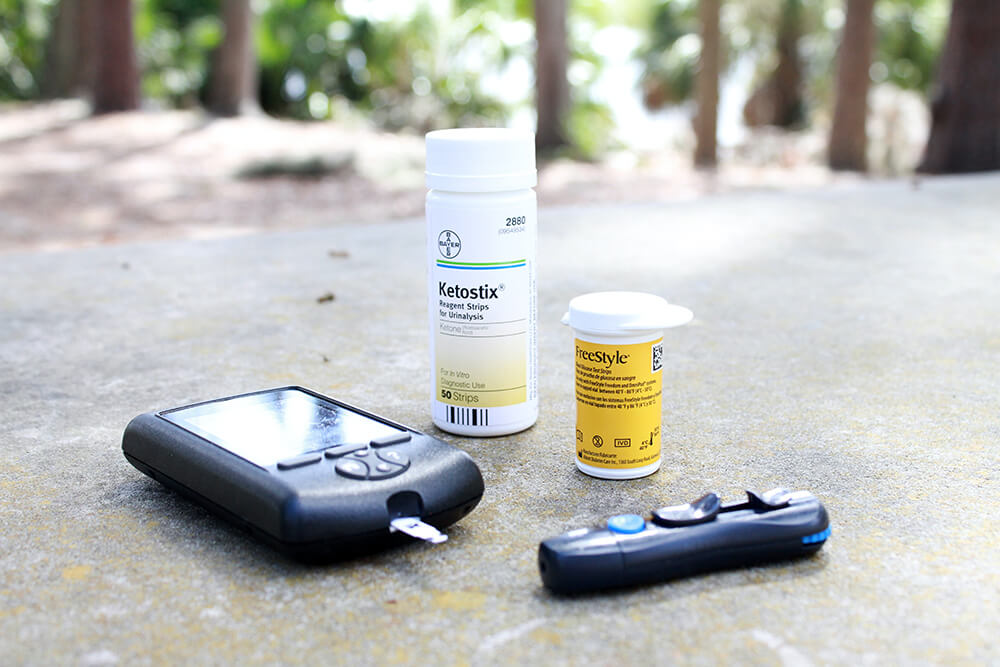How long does it take to get into ketosis — Ketosis is a natural process of fat burning in the body. It can take two to three weeks to start seeing the weight loss benefits.
The ketogenic diet, also known as a low carbohydrates and high fat diets have been shown to help people lose weight.
The first two weeks are a crucial time for your body to get used keto-adaptation.
In these initial stages, you’ll experience what’s called “the switch,” where all of the energy needs will be met through fat or glucose instead, depending on how much carbohydrate food is available in your diet at any given moment.

Photo by Autri Taheri on Unsplash
Do ketone salts help you get into ketosis faster?
Yes, the benefits of BHB salts (aka ketone salts) include the ability to get you into ketosis faster, provide a temporary energy boost and aid mental performance.
Exogenous ketones are a class of ketone bodies that can be ingested using nutritional supplements or foods.
Exogenous ketones are the body’s natural way to come back into balance when there is too much glucose or certain types of fats in circulation. These substances can be produced by interactions between macronutrient availability and hormone signaling, like low insulin levels with high glucagon/cortisol production (to name one).

Photo by Karsten Winegeart on Unsplash
What are ketones?
Ketones are a natural byproduct of fatty acid breakdown that can be used for fuel, instead of glucose. Ketones can be used for energy during fasting, long periods, or exercise when you don’t have many carbohydrates in your diet.

Photo by Mykenzie Johnson on Unsplash
What are the different ketone levels?
- Nutritional Ketosis (Light Nutritional Ketosis) 0.4 – 1.0 mmol/L
- Moderate Ketone Zone (Optimal Ketone Zone) 1.0 – 3.0 mmol/L
- Post Exercise Ketosis (Optimal Therapeutic Zone) 3.0 – 5.0 mmol/L
- Fasting Ketosis (Ketoacidosis) 9.0 – 10.0 mmol/L
Keto dieters and understanding insulin resistance?
You may have insulin resistance if you’re diagnosed with high blood sugar levels, triglycerides (a kind of fat), LDL cholesterol and HDL.
Your health care provider will determine this by conducting tests on your bodily fluids like urine or serum samples.

Photo by Hayley Kim Design on Unsplash
How long does it take to see results with keto?
Every person sees different results but studies show that most people who stick to a strict ketogenic diet start to see noticeable weight loss results in 10 to 21 days.

Photo by Christin Hume on Unsplash
How long can you stay in ketosis?
For most people, the keto diet is a long-term commitment. You’ll need to follow it for three months at least to achieve long-term sustainable weight loss benefits.
If you want to know how efficiently your body produces ketones, there are two things that matter.
The first is the length of time spent in a state of dietary carbohydrate restriction; this will determine whether or not it’s possible for someone stay indefinitely on an intermittent fasting plan like Keto diet (or any other).
Secondly-the timing around meals can affect what stage they’re when analyzed by metabolism tests because some people have better luck eating small amounts at certain points during day while others might find success taking larger breaks between feedings.

Photo by Sven Mieke on Unsplash
Do you need keto pills or keto supplements to enter ketosis?
No. Keto pills, keto supplements and ketone supplements aren’t required to benefit from the keto diet.
If you are new to the keto diet — you can consider taking a digestive supplement that contains both protease and lipase enzymes that help break down protein or fat.

Photo by Anastasia Hisel on Unsplash
What does ketosis feel like?
When you start the keto diet, it can be challenging to feel like your body is living off of fat rather than carbs. The lack of energy during this time period will pass after a few days as long as there are no major obstacles to adapting more efficiently.
Many people report decreased hunger while following a ketogenic diet. This may be due in part because our bodies are now using fat for energy rather than carbs, and it’s been suggested that this change can reduce appetite through alterations with hormones involved here as well – especially ones related directly towards whether or not we’re hungry at any given time. The high-fat content also seems likely why some folks find themselves feeling fuller quicker after consuming meals–and without those spikes associated side effects such ate cravings (or Processed Foods).
The “keto flu” is often a part of the extreme carb restriction process. It can cause fatigue, weakness, and lightheadedness, among other side effects that are not always pleasant to experience.
The transition from relying on glucose for fuel switches our metabolism into an unmatched mode that burns butter! Don’t worry though-the symptoms go away once everything starts working well again.

Photo by CA Creative on Unsplash
What happens in the body after keto adaptation?
Keto-adaptation can take anywhere from 1 week to 10 days, but many people experience the positive effects of ketosis after only a few days.
Once stores of glycogen become depleted, the brain and other organs begin a process in which they use fats instead.
They report increased mental concentration and focus as well as more physical energy than before they began their low carbohydrate diets!
Is it ok to go in and out of ketosis?
Yes, it is okay to go in and out of ketosis but it is important to remember that the diet and weight loss benefits will be impacted by going on and off plan.
There are some benefits of going and out of keto by increasing and decreasing your carbohydrate intake.
BONUS: Daily carbohydrate intake calculator
A handy tool for keeping track of your carbohydrate intake, the Carb Calculator estimates how much you should be eating each day.
Keto cycling can be done in a variety of ways, depending on your personal preference. Some people choose to have five or six days on keto followed by one day off while others will go 10-12 consecutive days with three – four “off” periods between them at either end for an even distribution across the course total time frame (i..e., not staying strictly within just these defined segments).
How long should I really follow the keto diet if I want fast weight loss?
If you’re going to follow this low carb diet for weight loss, it’s best to give it at least six weeks. Some people report feeling more energy after the keto flu symptoms subside.


